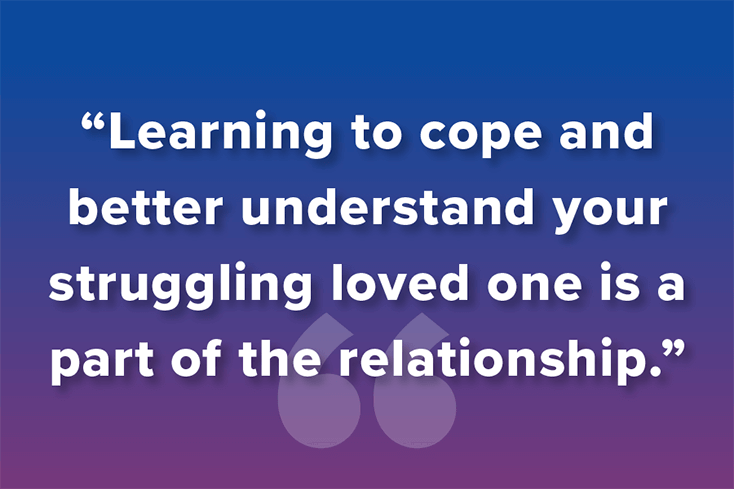
30 plus years. Multiple verbal outbursts. Four hospital stays. Two suicide attempts — one barely caught in time. Many medication prescriptions, trials, psychiatrist visits.
But she’s still here. Still fighting.
Living with a spouse or loved one with a mental health condition is no small feat. It’s work; it requires a new level of empathy, caution and resilience. It means paying attention to patterns of behavior, constantly listening for keywords or red flag moods. It demands that you be always be prepared.
Over the years, I’ve developed some critical insights into mental health and supporting a loved one navigating mental illness. I didn’t understand it at first. I didn’t understand what depression, bipolar disorder or schizophrenia really meant.
In our early years together, I began to notice my wife’s outbursts and sudden anger, not really understanding what brought it on. After a few years, she was diagnosed with bipolar disorder with mild schizophrenic symptoms and anxiety. Her doctor has described her as having a “high functioning schizophrenia.” With her commitment to a medication regimen, she can function and live a “normal” life.
Since her last suicide attempt, my wife has made great strides. She switched to a great psychiatrist, got her medications aligned and has seen drastic improvement in her symptoms. I’ve noticed how she has been more in control and able to handle the challenges life brings. She maintains a positive outlook and sticks with her medication schedule. Sometimes her symptoms intensify for a few days, but we’ve been able to manage it with clear communication and support.
As we’ve navigated her treatment, I’ve thought a lot about what I want people to know about my family’s experience. I want others to know that many of us, while we may not have a mental health condition, still live with the painful realities of mental illness. And that’s ok. Learning to cope and better understand your struggling loved one is a part of the relationship. It’s important to not give up on them. You will have an important role in keeping their spirits up while they fight for recovery.
My workplace has a “mental health week” each year. They discuss taking vacation time, clearing your mind, developing work-life balance, etc. Those are certainly good suggestions to highlight in the workplace, but I would like mental health awareness to go beyond self-care practices. There are more experiences I’d like my coworkers to be aware of. Like sitting at your desk wondering if your partner, wife, husband or significant other is ok. Did they fall into a dark place? Is it a short episode this time? Did I hide all unnecessary medication? What will I walk into when I get home?
That is the kind of stress we rarely talked about at work. This year, one of my co-workers lost their spouse to mental illness. I could tell by our coworkers’ reactions; this painful reality was unfamiliar to a lot of them. I noticed that my coworker never mentioned herexperience after losing a loved one.I often wonder if she feared the stigma and judgment that often accompanies mental health crises.
This needs to change, and I decided I want to be a part of it. This year, I volunteered for our Wellness Committee at work. I want to educate about mental illness and point those who may be struggling to the right resources. I want my coworkers who are suffering to know where to turn or who to call. Everyone deserves to get help — and I plan to be a part of their journeys.

